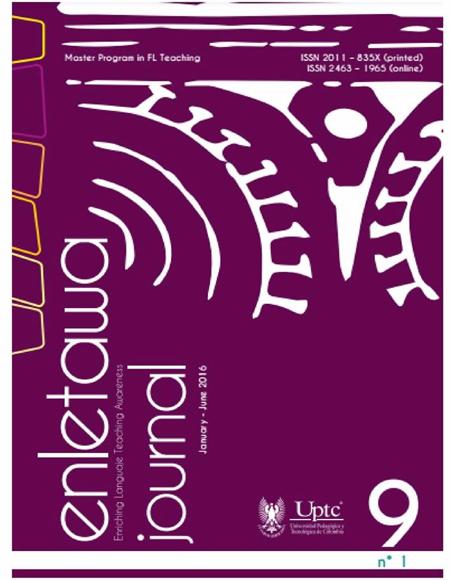Editorial

Abstract
This new edition of Enletawa journal includes five articles which are the product of Master’s candidates’ research and reflection on English teachers’ pedagogical practices. Our journal, like several other Colombian publications in the field, has been propelled by the growing influence that Master’s students are bringing to English teaching and learning. The population of teachers enrolled and graduated from Master’s programs in our country has rapidly increased. From two existing M.A programs prior to the year 2000, the country has moved to approximately twenty currently . In general, this fast pace of growth in this type of graduate course aligns with a national trend. By the year 2002, there were slightly more than 100 M.A programs in all fields and now the number has risen to more than 400 nationally. Master’s programs are then leveraging the quantity and quality of publications in our field. By publishing their research and pedagogical experiences, participants in these graduate courses contribute to broadening our awareness of what occurs in those contexts where English is taught as a foreign language in Colombia.
Considering research findings presented by Viáfara (2016) , Master’s candidates and graduates claim that their participation in these programs fosters their reflection upon their pedagogical practices, skills to conduct research, new views of knowledge and teaching work improvement. The articles that teachers produce in the route to obtaining graduate degrees or manuscripts that Master’s graduates managed to publish in Colombian journals reflect precisely what participants in Viáfara´s study claimed they have gained while studying in these programs. The five articles in this issue, for instance, are powerful sources of information about how teachers’ Master’s studies have prepared them to orderly implement research plans and find answers to their queries resulting
in the improvement in their students’ learning. While teachers work in their programs and set out to investigate what occurs in their practice and their students’ learning, their constant reflection guides their thinking. However, these publications show that authors not only employ reflection intertwined with research but they also use reflection to challenge adverse circumstances when confronting national policies. Authors show us that reflection is not just about deliberating, but most importantly, it leads to proposals.
Three articles describe proposals teachers implemented in their schools or work places as part of their graduate studies. At the university level, Milton García shares the findings of a study conducted with students seeking to foster their intercultural development. After examining his participants’ skills, the author designed and implemented pedagogical interventions which resulted in students’ increase of what he calls cultural recognition, cultural experience and cultural reaction. With the purpose of exploring her students’ power relationships and how these power issues are related to their English learning. Lila Maribel Gutiérrez put into place an instructional methodology rooted in task-based learning. In her findings, the author discusses positive and negative features which emerged as students used power in English classes. The third article, written by Jorge Robayo, a school teacher in Ubaté Cundinamarca, illustrates how cooperative learning was employed as a pedagogical strategy to lessen secondary students’ shyness and anxiety when participating in English lessons.
In their articles, Monica Patarroyo and Adriana Avella with Geidy León, reflect upon the effect that national language policies have on teachers’ decisions regarding pedagogical practices and materials. Monica Patarroyo’s analysis seeks to raise awareness concerning factors behind the mismatch between textbooks selected for English instruction and the characteristics, needs and interest of these materials’ users in specific contexts. Language education policies adopted by the Colombian government in the last decades are identified as powerful causes of these discrepancies. Likewise, Adriana Avella’s manuscript discusses policies emanating from the National Bilingualism Program (PNB) to justify the need for post-method pedagogical proposals in national English teaching contexts. These university instructors include some proposals to show how theory can translate into practice regarding such teaching options.